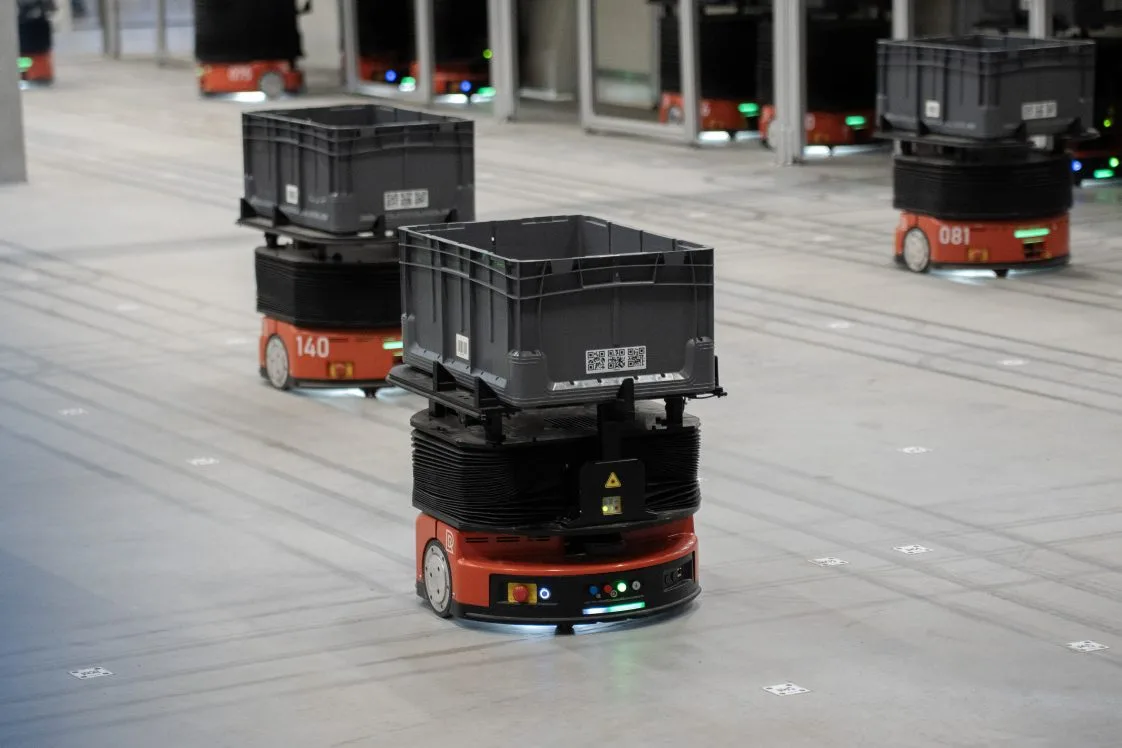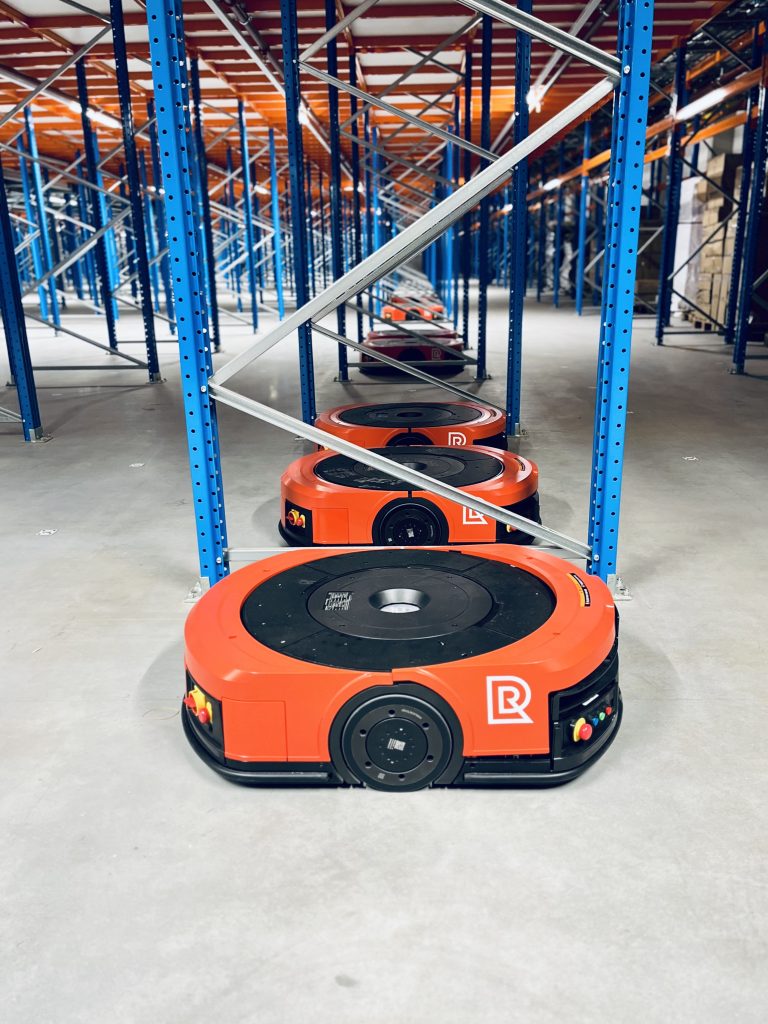Transforming fulfillment with AI
McKinsey Global Survey on the state of Artificial Intelligence shows that the number of organizations adopting AI in their business more than doubled. Radial leads innovation in the fulfillment industry by actively integrating AI into services and transportation. We prioritize fit-for-purpose, scalable solutions with a strong emphasis on quality and cost-efficiency. Our strategy involves investing in automation technology and optimizing it through intelligent algorithms to leverage capacity efficiently.
The annual McKinsey Global Survey on the state of AI shows that the proportion of responding organizations adopting AI more than doubled from 20 percent in 2017 to 50 percent in 2022. Radial is not merely following this trend, we are at the forefront of innovation in the fulfillment industry. We actively explore the integration of AI into our strategic services: fulfillment and transportation.
Radial focuses on fit-for-purpose and scalable solutions, placing strong emphasis on quality and cost-efficiency. Our approach is to invest in automation technology and optimize it through intelligent algorithms, efficiently leveraging capacity. AI and logical approaches drive automation not only to enhance Radials quality and productivity but also to support the expansion of services offered in last-mile transportation.
Impact of automation and algorithms on fulfillment
Our current utilization of AI is primarily focused on robot traffic optimization, particularly within the solution implemented in our warehouse in the Netherlands. We use well-trained robots to perform certain tasks just as well as humans but with the added benefits of being highly scalable and never needing to take breaks.
Previously, in our site in Groningen, employees traversed the warehouse to fulfil orders. A process that inherently consumed time and was prone to errors. Today, we use robots that bring the products to our operators. When provided with specific instructions, they execute tasks flawlessly 24 hours a day. To efficiently control their work and assign tasks for maximum productivity, we employ algorithmic management.

Jan Dierckx, Chief Technology Officer Europe at Radial: “This optimization can be likened to managing traffic on a highway, where an increase in the number of cars can lead to congestion. We use algorithms to manage robot traffic and act as a traffic control system for our robotic workforce. Robots perform tasks efficiently, and our algorithms maximize capacity utilization. As a result, we have not only increased productivity but also minimized errors, which significantly improved quality control. A combination of AI and manpower allowed us to increase volume and enhance customer experience.“
Automation and human expertise
Investments in Radials’ solution design team, experts understanding and “speaking” data and analytics, those working on-site to manage the automation and robots, as well as data-driven practises themselves have been significant during the last 3 years.
The shift from exclusively manual operations to a combination of automated equipment and manual work hasn’t eliminated the need for human involvement. It has necessitated a different skill set. Our on-site engineers are responsible for maintaining the technology, while operators play a crucial role in supporting core processes. This dynamic combination of automation and human expertise ultimately drives productivity enhancements within our operations.
Predictive AI to perfect transportation
As a last-mile transportation specialist, we prioritize customer support and aim to enhance the end-to-end journey experience. Our processes involve:
- receiving orders,
- efficient pick and pack operations,
- swift shipment execution in alignment with service-level agreements.
- seamless handover to carriers who carry out the final parcel delivery.
While we currently offer valuable real-time insights in this area, our goal is to include predictive elements.
“Using generative AI and machine learning trained with real-time and historical data, we can predict the expected “carrier events”, like potential delays due to specific exceptions. With this information, customers can take proactive steps in response to any delivery delays, including notifying their own customers” comments Jan Dierckx.
Currently, this functionality is conceptualized as an additional service offering to empower our customers with precise insights into their deliveries.
Proactive fulfillment services
This type of proactive approach is emblematic of Radial. We focus on our clients to deliver exceptional service while ensuring the productivity and quality of fulfillment processes. We are constantly raising the bar of the customer journey. Through the application of AI technology, we are able to deliver relevant insights and information to customers. This ultimately benefits the end customer.

Jan Dierckx, Radial’s Chief Technology Officer, leverages two decades of IT expertise. He has worked on a wide range of projects, including e-commerce solutions, customer relationship management (CRM) systems, and enterprise resource planning (ERP) systems. He is an expert in cloud computing and big data analytics and advocate for the use of technology to improve business performance and customer experience.
If you want to transform your fulfillment journey with our exceptional service, powered by cutting-edge technology, contact us today.
Follow Radial on LinkedIn.
